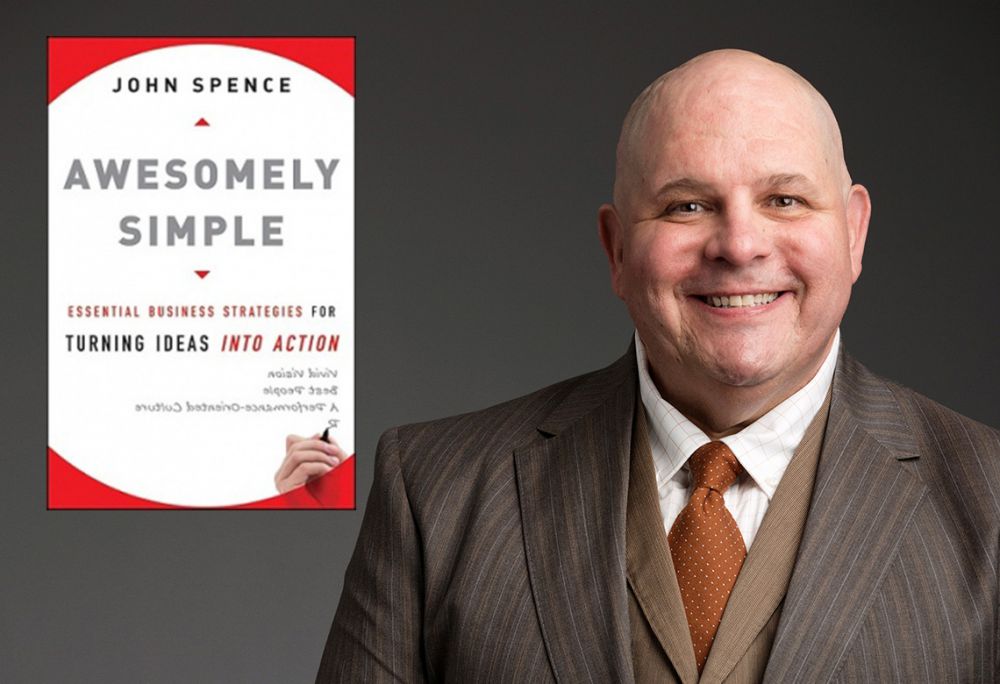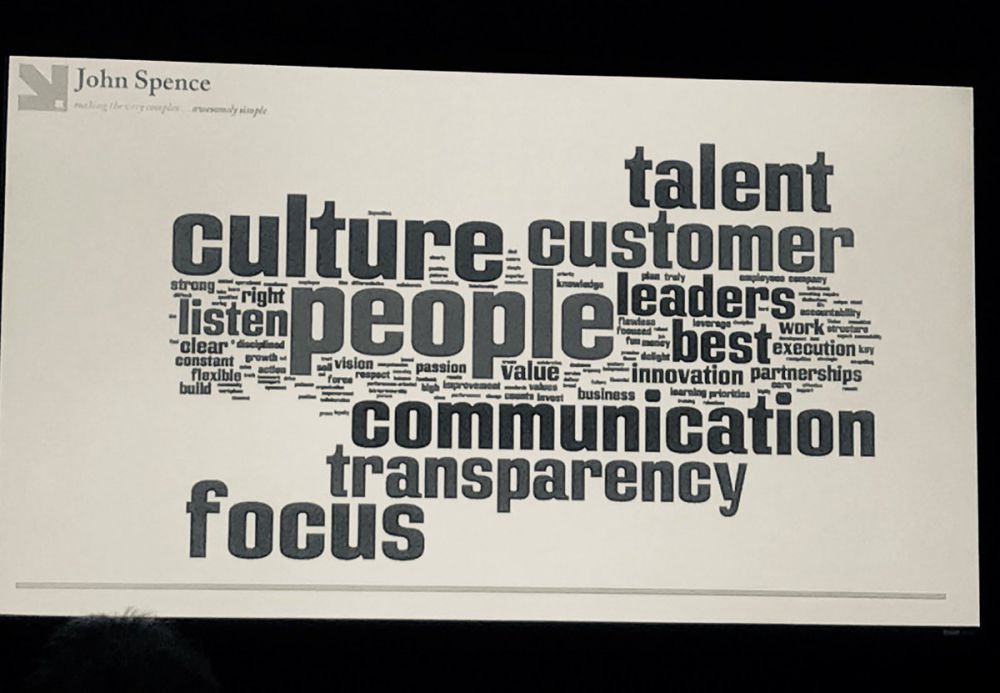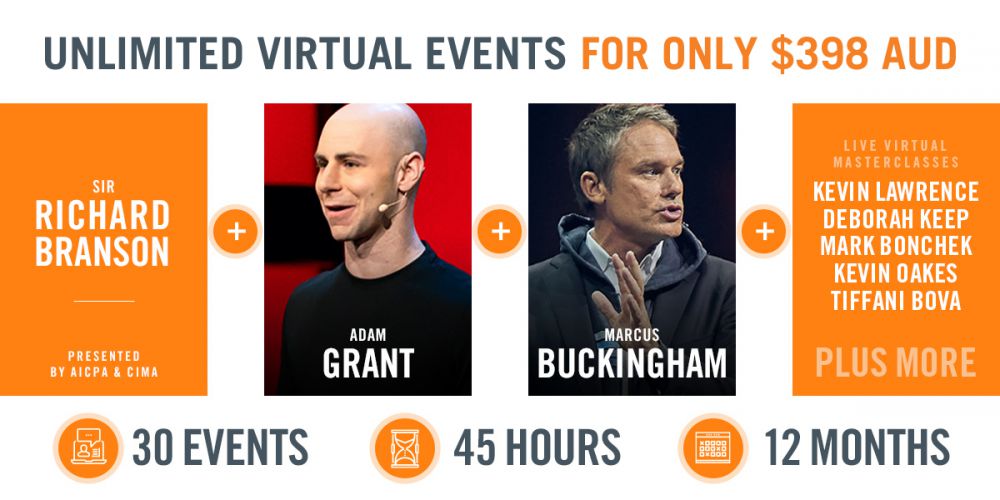How John Spence teaches adaptability to the top global leaders

“You become what you focus on and who you surround yourself with.” – John Spence
Times are tough.
And, when they're this tough, it pays to focus on what’s going well.
What are we grateful for? Where are the opportunities?
That’s the advice of John Spence, executive coach and author of Awesomely Simple, to delegates of this week’s adaptability masterclass for The Growth Faculty.
Here are his tips for focussing forward.
Master the 3 quotients to be an effective leader
IQ = competence – are you good at what you do? These days you must be a lifelong learner.
· The average businessperson reads a half a book a year. If you were to read one book every other month (6 books a year) you'd be in the top 1% of the country you live in.
· If you read one book a month, you'd be in the top 1% in the world for self-learning.
· If you got your team to read books (or take masterclasses or equivalent) you’d see a huge impact.
EQ = emotional quotient. You can learn EQ (learn to express your emotions, be vulnerable to say how you feel).
· Self-awareness: The emotion I’m having right now
· Self-regulation: Can I step back and deal with the emotion?
· Empathy: Trying to put yourself in the shoes of others.
Your explanatory style is the story you tell yourself about what’s happening in your life through the lens of: Permanence, Pervasiveness, Personalisation.
- A pessimist thinks it’s terrible, will last forever and it’s all their fault. An optimist will view it as not so bad; it won’t last that long. It’s not their fault.
AQ = your agility quotient. It covers personal agility and organisational adaptability. Both need PASSION, PERSISTANCE, PRACTICE, and PATTERN RECOGNITION.
Let's look first at personal agility.
PERSONAL AGILITY:
· Curiosity - helps you see patterns.
· Flexibility - trying on ideas, getting rid of old ideas.
· Realistic optimism – taken from The Stockdale Paradox (Good to Great by Jim Collins) –look at the brutal facts of your reality without losing optimism that you will prevail in the end.
· Resilience – grit, getting back up when you’re down.
Now let's look at organisational adaptability.
ORGANISATIONAL ADAPTABILITY
During the pandemic, may companies showed organisational AQ by going out to vendors and customers and asking, ‘What do you need that you can’t get hold of easily right now?’
- Set direction not destination (Live with some ambiguity. Keep figuring out how the industry is going and finding new destinations)
- Make it personal (Talk up your values, culture, mission)
- Adopt a growth mindset (‘We are going to grow and be successful’)
- Create opportunities for regular idea and knowledge sharing (Encourage staff who say I just read this book, here’s a good video)
- Freedom to experiment (When someone goes out on a limb, don’t cut the limb off if it didn’t work. Thank them.)
- Determine what risks are necessary and what failures are acceptable.
- Recognise opportunities and act quickly (We’re all getting tired with this pandemic but keep up the momentum).
- Communication and collaboration.
- Monitor and learn (Use it or get rid of it).
So what's a visual way of representing a good business?
John Spence decided to find out. Over 3 years he fed 200,000 pages from respected business books into Wordle (software that searches through documents looking for patterns) and discovered the major themes in them.
Below is the word cloud that was created.

So, in a nutshell, what do good companies do over and over again?
John Spence’s Formula for Business Excellence
As a consultant and coach to organizations worldwide, from start-ups to the Fortune 10, John has developed a formula for creating an excellent company.
TALENT + CULTURE + EXTREME CUSTOMER FOCUS X DISCIPLINED EXECUTION = BUSINESS EXCELLENCE
Some tips around each aspect:
TALENT: High performance people name these factors for working where they work:
· Fair pay (10% +/- of what I’d earn anywhere else),
· Meaningful work,
· Cool colleagues (A players only play with A players),
· A winning culture,
· Opportunity for growth (personal development – I need to know my company is investing in me & professional development – I can see a place in my company 5-7 years from today),
· A leader I trust, respect and admire (88% of people say #1 reason for quitting was 'idiot boss').
CULTURE: 91% of 1200 senior executives at global companies rate culture over strategy, says John.
A winning culture has these components: fun, family atmosphere, friends, fair (treated fairly), freedom (not micromanaged), pride, praise, meaning, results.
How do you create culture at a distance?
Work on ATMOSPHERE ISSUES that don’t cost any money:
· SAFETY (physically safe, emotionally safe, psychological safety),
· STABILITY (is my job safe? Is the company stable?),
· BELONGINGNESS (part of the tribe),
· APPRECIATION (I need to triple down on people are important to the team, they belong here).
EXTREME CUSTOMER FOCUS: Whoever owns the voice of the customer owns the marketplace.
Find your “moments of truth”: What are the 3 or 4 things that make or break your relationship with even your best customer? For a restaurant, it’s good service, good quality food, cleanliness (top of the list). If you miss one moment of truth you lose your customer.
Adaptability is good but only change when the market demands it.
DISCIPLINED EXECUTION: What % of companies effectively execute their plans? It’s about 5%!
5 keys to be accountable (for a mission critical project)
1. 100% clarity and appropriate authority and resources (very clear expectations) – ambiguity breeds mediocrity.
2. 100% agreement (‘I understand how this is measured; I accept accountability for delivery’).
3. Track and post (where people stand against their goal. Green, yellow, red)
4. Coach, mentor, train and support (you rush in and assist when needed if yellow or red)
5. Celebrate success (lavishly, lots of praise) – refuse to tolerate mediocrity (perhaps they don’t belong on the team)
A WORD FROM JOHN SPENCE ON STRATEGY:
Working harder is not a strategy, dropping prices is not a strategy; it’s a race to the bottom.
Your strategy must be:
1. Unique and compelling.
2. Your target customer values it highly.
3. Difficult if not impossible to copy.
4. You can consistently execute it/deliver it with excellence.
Where sustainable competitive advantage can come from:
1. People/Culture
2. Customer relationships
3. Brand (well-known, trusted brand – ie. sponsorships etc)
4. Data (how well and effectively its used, finding patterns)
Remember:
· Strategy is a guess (it’s not a blueprint).
· Pattern recognition helps you see a change in the marketplace before the competition does.
· Allocation of scarce resources is key. What do you back?
· NO!! (What do we say no to?)
So, in summary, remember John's advice at the top.
When times are tough, it pays to focus on what’s going well.
What are we grateful for? Where are the opportunities?
Then, get to work.
Good luck with your adaptability journey.
I wish you all the success in the world.
If you'd like to increase your professional development why not consider becoming a member of The Growth Faculty? One membership, unlimited access to 30 live virtual Time For Transformation masterclasses and the best live virtual events - PLUS year-round leadership content On Demand with videos, podcasts and book summaries. Join a community of knowledge seekers who are inspired by the best. Access $4350+ value for just $398 AUD. See who's up next.


 Australia
Australia
 European Union
European Union
 New Zealand
New Zealand
 United Kingdom
United Kingdom
 United States
United States
 Singapore
Singapore

